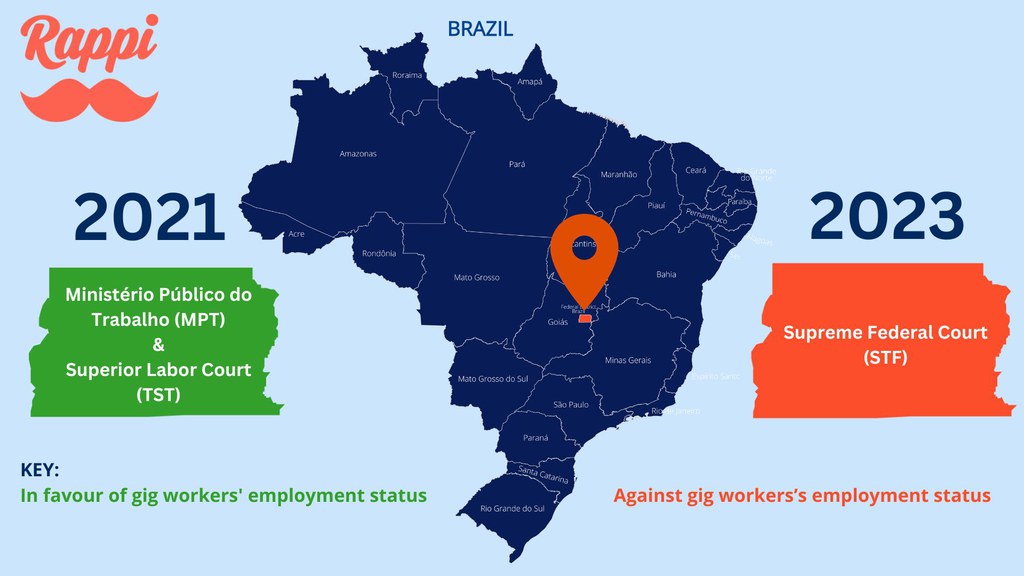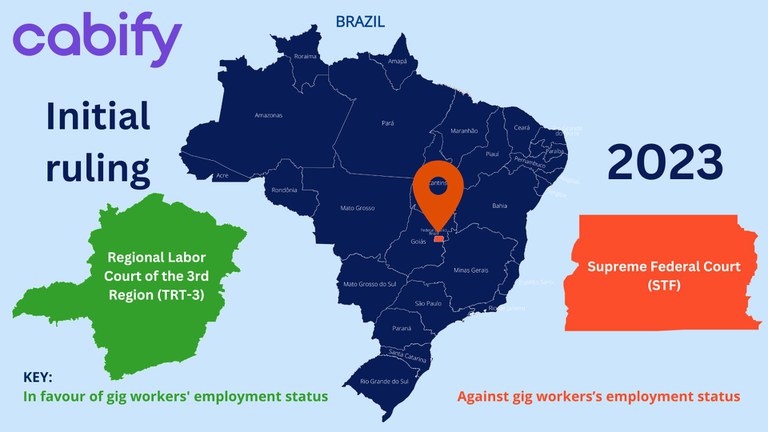
The manner in which different courts within the same country interact is crucial in defining the labour rights and status of those engaged in gig work.
As has been previously demonstrated, there is considerable variation in the way in which courts rule on the same issue. However, there are some local procedures that are worthy of note. One such example is that of Brazil.
The gig economy in Brazil is currently experiencing significant shifts, underscored by a recent landmark Supreme Court ruling that addresses the rights of workers in this burgeoning sector. In a notable case, iFood was ordered to pay R$15,000 in compensation to a driver who was banned from the app without adequate evidence, emphasising the need for fair treatment and transparency in gig work practices.
However, the WageIndicator database highlights another interesting trend: in other remarkable cases, the Supreme Federal Court (Supreme Tribunal Federal, STF) has overturned previous rulings handed down by lower courts. In all these cases, the rulings by lower courts had ruled in favour of the employment status of gig workers, and the STF annulled them, and challenged the prevailing interpretation by labour courts of the employment relationship between app platforms and their workers.
This occurred in November 2023, as illustrated in the first visual: the Superior Labour Tribunal (STF) annulled a decision that had previously recognised the employment status of a Rappi food delivery rider. One month earlier, a regional labour court had sentenced Rappi to hire all drivers who had previously been employed by the company for a minimum of six months.

A similar outcome was reached in a case involving the ride-hailing app Cabify and its drivers (second visual): a Regional Labor Court of the 3rd Region (TRT-3) in Minas Gerais recognised the employment relationship of a driver with the platform; Cabify appealed, and the STF overturned the labour court decision. The highest court also stated that it wanted to avoid similar cases would come again to them in the future.
As Brazil navigates these evolving legal frameworks, this moment marks a crucial step towards fostering fair labour practices and ensuring that all workers receive the protection they deserve, ultimately shaping the future of work in the country.
The STF’s decisions are pivotal in shaping labour laws that reflect the realities of the gig economy. By affirming the link between delivery workers and the companies they serve, the Court not only sets a legal precedent but also encourages a re-evaluation of how gig work is classified. The implications are profound: with an estimated 1.5 million workers engaged in the gig economy, these rulings could catalyse broader reforms aimed at ensuring equitable treatment and better working conditions.
In the meantime, Federal Supreme Court (STF) Justice Edson Fachin has scheduled a public hearing for 9 December to discuss the issue of employment relationships between app drivers and digital platforms.
More information on labour costs for Brazilian platform workers
